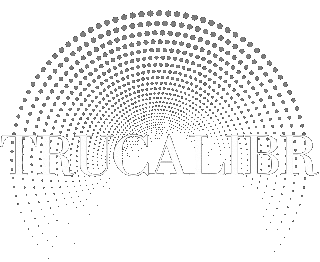What is a dopamine detox and how does it work?
A dopamine detox is a technique that involves taking a break from activities that overstimulate the brain’s reward system, such as social media, video games, and junk food. The goal of a this detox is to reset the brain’s dopamine levels and reduce dependence on instant gratification.
During a detox, individuals typically avoid activities that provide quick rewards and instead focus on low-stimulus or productive tasks. This can include activities like reading, meditating, exercising, or spending time in nature.
The idea behind a dopamine detox is to give the brain a chance to recalibrate its reward system. By reducing exposure to highly stimulating activities, individuals may experience increased motivation, improved focus, and enhanced overall well-being.
It’s important to note that a detox is not meant to be a permanent lifestyle change but rather a temporary reset. It can be used as a tool to break unhealthy habits and regain control over one’s attention span and productivity.
How long should a dopamine detox last?
The duration of a dopamine detox can vary depending on individual preferences and goals. Some people choose to do shorter detoxes lasting 24 hours or even just a few hours, while others opt for longer periods ranging from several days to weeks.
The key is to find a duration that works best for you and aligns with your specific needs. If you’re new to this kind of detoxing, starting with shorter periods may be more manageable. As you become more comfortable with the process, you can gradually increase the duration if desired.
For a dopamine detox, listen to your body and adjust the duration to escape overstimulation effectively. Plan how you’ll spend detox time to stay engaged and productive. It’s crucial for a successful detox.
What are the benefits of a dopamine detox?
A dopamine detox can offer several benefits for both mental and physical well-being:
- Reduced distractions and instant gratification can lead to increased focus, productivity, and improved task efficiency.
- Enhanced motivation: Resetting the brain’s reward system can help reignite motivation and make long-term goals more appealing.
- Better mood regulation: Detoxing from highly stimulating activities can lead to a more balanced emotional state, reducing mood swings and increasing overall happiness.
- Improved self-control: Breaking free from addictive behaviors can strengthen self-discipline and increase control over impulsive actions.
- Heightened creativity: Disconnecting from constant external stimuli allows space for new ideas and creative thinking to flourish.
It’s important to note that individual experiences may vary, and not everyone may experience all of these benefits. However, many people find that incorporating regular dopamine detoxes into their routine can have positive effects on their overall well-being.
Can a dopamine detox help with addiction?
A dopamine detox alone may not be sufficient for treating addiction. Addiction is a complex issue that often requires professional help, therapy, or support groups. However, incorporating these detox principles into an addiction recovery plan can be beneficial.
Dopamine plays a significant role in addiction as it is involved in the brain’s reward system. By reducing exposure to activities that trigger excessive dopamine release, individuals can help reduce cravings and break the cycle of addiction.
Additionally, a detox can provide individuals with a fresh start and an opportunity to develop healthier habits and coping mechanisms. It can serve as a foundation for other addiction treatment strategies and support long-term recovery.

Are there any potential side effects of a dopamine detox?
While a dopamine detox is generally considered safe, some individuals may experience temporary side effects as their brain adjusts to the reduced stimulation. These side effects can include:
- Restlessness or irritability
- Mood swings
- Difficulty concentrating
- Sleep disturbances
- Cravings for instant gratification activities
These side effects are typically short-lived and subside as the brain adapts to the new level of stimulation. It’s important to stay patient and committed during this adjustment period.
How often should I do a detox?
The frequency of dopamine detoxes depends on individual preferences and goals. Some people choose to incorporate regular, shorter detoxes into their routine, such as once a week or once every few weeks.
Others may opt for more extended periods between detoxes, such as once every few months. The key is finding a balance that works for you and supports your overall well-being without feeling too restrictive or overwhelming.
If you find that you’re struggling with addictive behaviors or constantly seeking instant gratification, more frequent detoxes may be beneficial in breaking those patterns. Ultimately, it’s essential to listen to your body and mindfully assess when it’s time for another reset.
Can I still use technology during a dopamine detox?
During a dopamine detox, the goal is to reduce exposure to highly stimulating activities that trigger excessive dopamine release. This often includes limiting or avoiding the use of technology, such as smartphones, social media, and video games.
However, the extent to which you restrict technology during a detox is up to you. During detox, people may fully disconnect from technology or use it sparingly for essential tasks and communication.
The key is to be mindful of how technology affects your dopamine levels and overall well-being. If certain apps or activities consistently lead to overstimulation or addictive behaviors, it may be beneficial to limit or avoid them during your detox.
Can a dopamine detox improve my sleep quality?
A dopamine detox can potentially improve sleep quality by reducing exposure to stimulating activities before bedtime. Many electronic devices emit blue light, which can interfere with the body’s natural sleep-wake cycle.
By avoiding screens and engaging in low-stimulus activities during a detox, individuals may experience better sleep hygiene and find it easier to fall asleep and stay asleep throughout the night.
Reducing screen time and maintaining sleep schedule, routine, and environment contribute to better sleep quality.
Is there scientific evidence supporting detoxes?
While there is limited scientific research specifically on dopamine detoxes as a standalone technique, several studies support the underlying principles behind this approach.
Research on addiction and reward systems has shown that excessive stimulation of the brain’s reward pathways can lead to desensitization and decreased sensitivity to natural rewards. Taking breaks from highly stimulating activities can help restore balance in these systems.
Additionally, studies on mindfulness, meditation, and the benefits of nature exposure have demonstrated positive effects on mental well-being and attention regulation.
While more research is needed to fully understand the specific effects of dopamine detoxes, many individuals report personal benefits from incorporating these principles into their lives.
Summary Table
| Question | Answer |
|---|---|
| What is a dopamine detox and how does it work? | A dopamine detox involves taking a break from activities that overstimulate the brain’s reward system to reset dopamine levels. |
| How long should a dopamine detox last? | The duration can vary, but it’s important to find a duration that works for you and aligns with your needs. |
| What are the benefits of a dopamine detox? | A dopamine detox can lead to increased focus, enhanced motivation, better mood regulation, improved self-control, and heightened creativity. |
| Can a dopamine detox help with addiction? | Dopamine detox principles can be beneficial in addiction recovery but may not be sufficient as standalone treatment. |
Conclusion
A dopamine detox is a technique that involves taking a break from activities that overstimulate the brain’s reward system. Reducing stimulation boosts focus, motivation, mood, self-control, and creativity in individuals through limited exposure to such activities. It’s important to note that a dopamine detox is not a cure-all solution and may not be suitable for everyone. Individuals with underlying mental health conditions or those who are undergoing addiction recovery should consult with a healthcare professional before attempting any detoxes.






